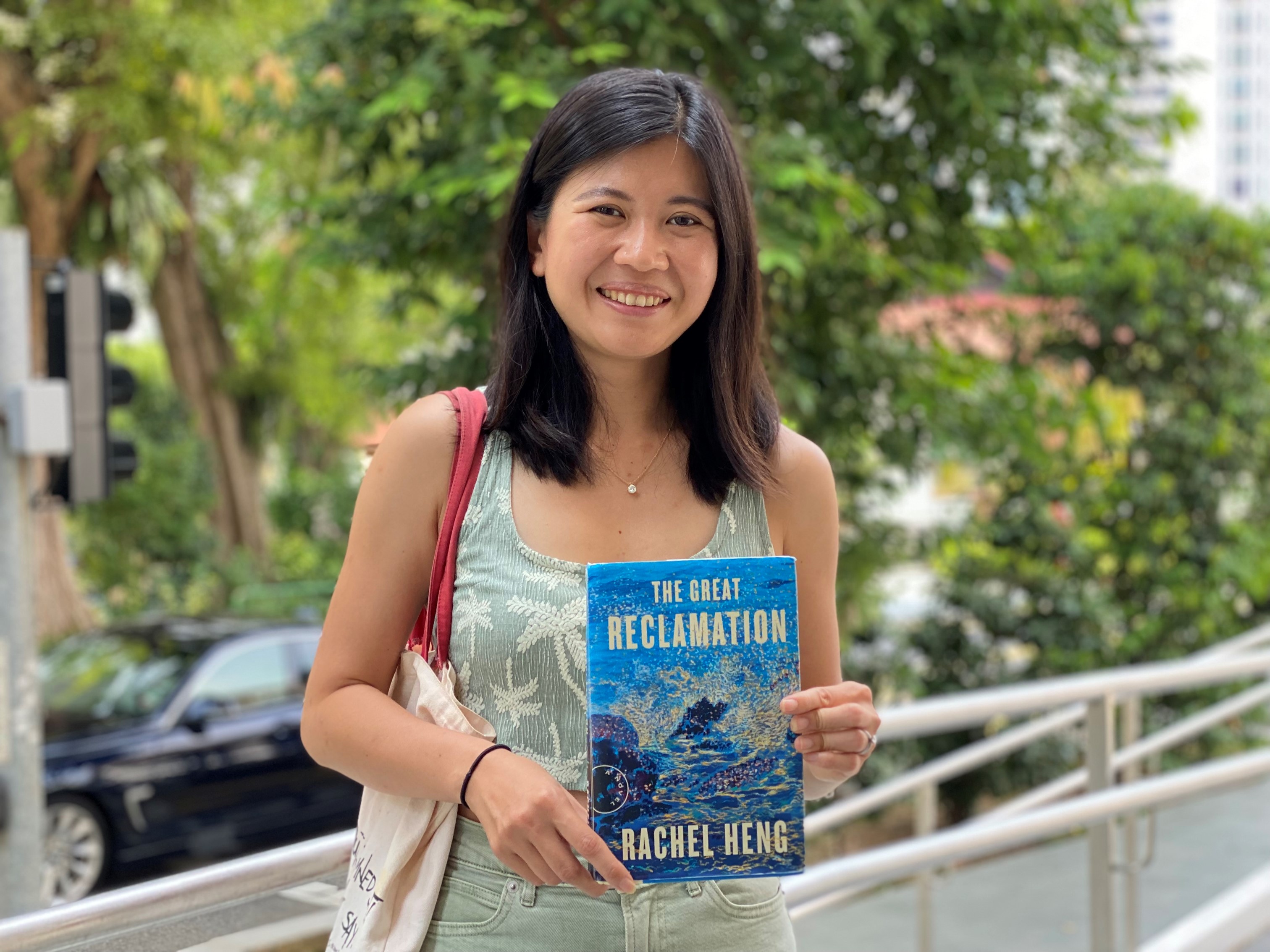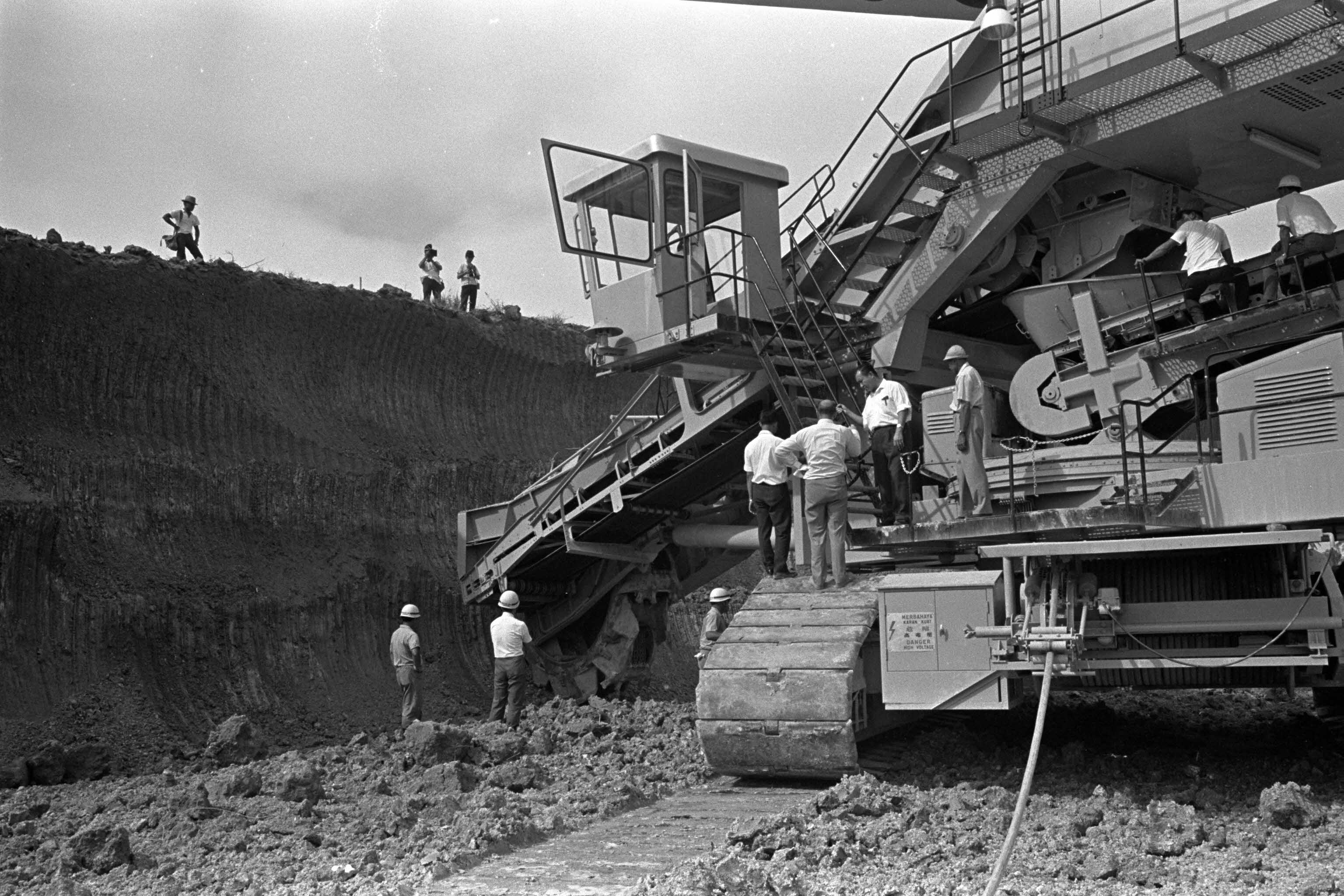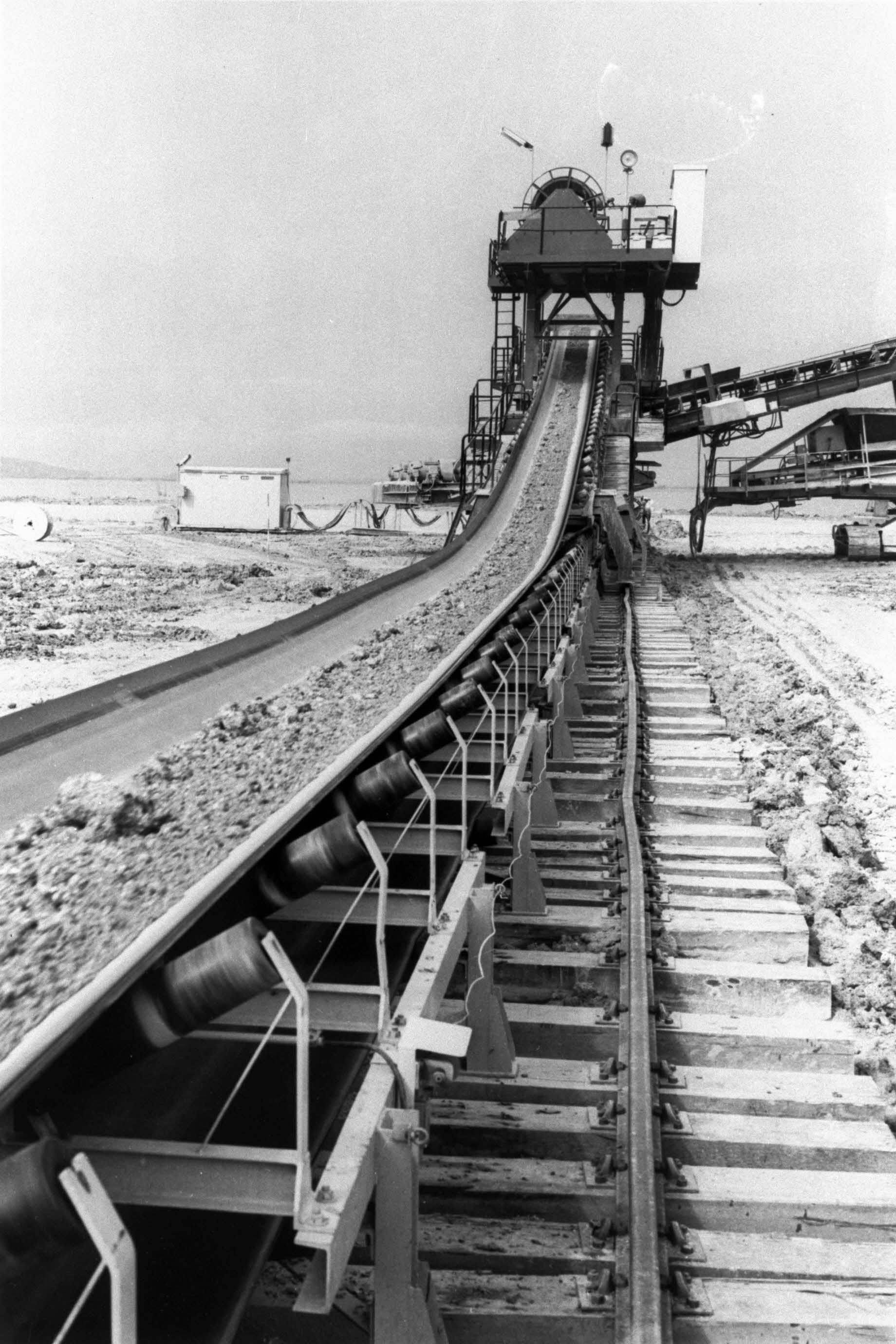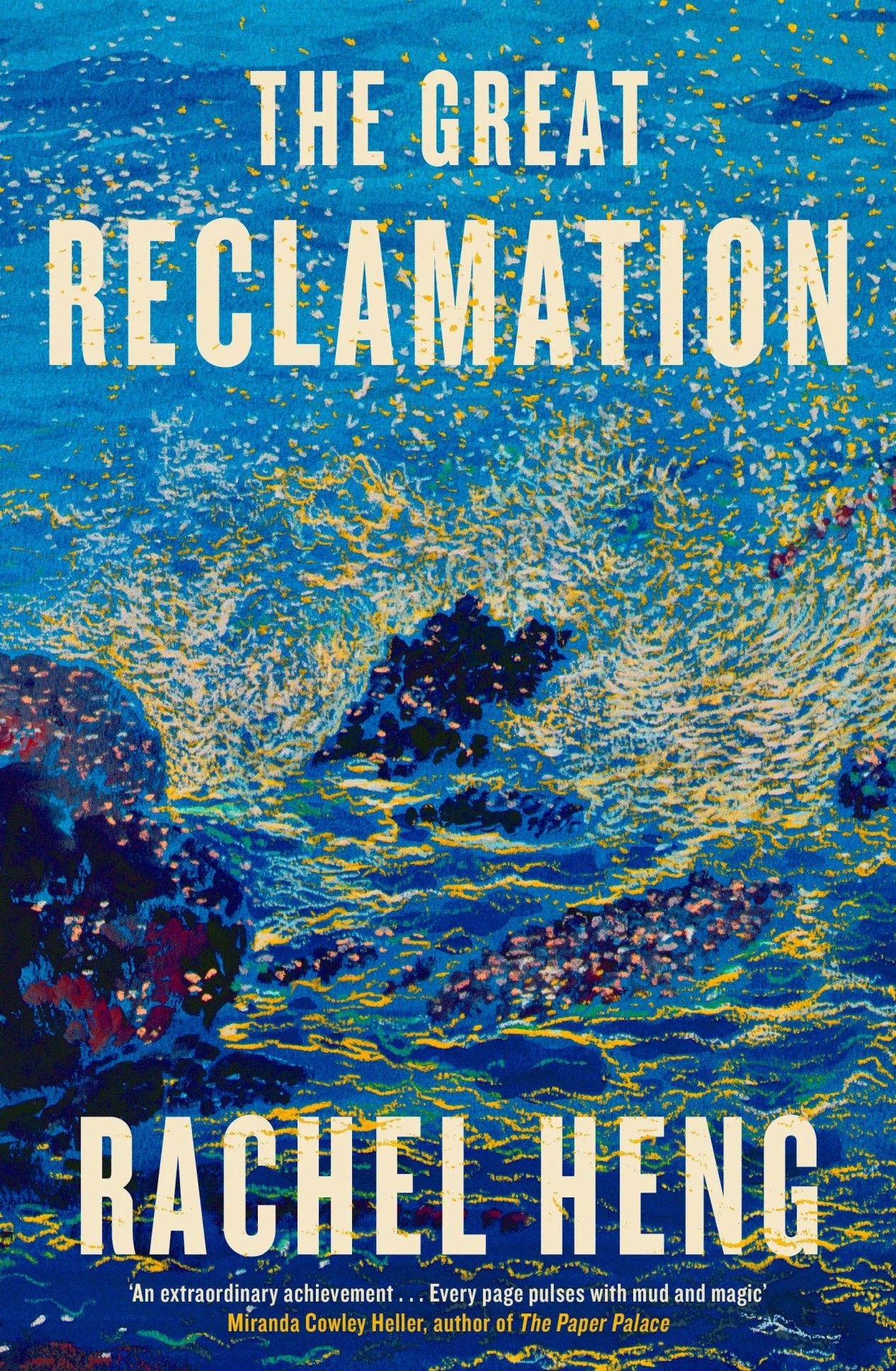An Interview with Rachel Heng, Author of The Great Reclamation
The Great Reclamation is a fascinating historical novel about land reclamation in 1960s Singapore. Also a love story, the book has been named a New York Times Editor’s Choice, and a “Best Book of 2023 So Far” by the New Yorker and Amazon Books. Editor Soh Gek Han interviews Rachel Heng on her novel for a BiblioAsia+ podcast.

Gek Han
Thank you so much for taking the time to do this podcast with us. It’s really thrilling to see a book set in Singapore by a local writer getting such rave reviews worldwide and at home. How has it been like for you?
Rachel
It’s been wonderful. I never dared expect it. When I first started writing the book, maybe five or six years ago, a part of me worried that no one would want to publish, let alone read a book about land reclamation in 1960s Singapore. It’s quite a departure from my first book [Suicide Club], which was speculative fiction with sci-fi concepts. The Great Reclamation is a deep historical fiction with a unique Singaporean setting. But thankfully, it did get published and has received a pretty great response, both in Singapore as well as abroad. And the story seems to be universal in some ways and has spoken to a wide cross-section of people across the world.
Gek Han
You’ve really made history come alive. And you’ve made it personal. We’ve read about land reclamation and people resettling. But with these characters, you can really feel the emotions. What gave you the idea to write about this topic?
Rachel
I’ve always been interested in land reclamation. I went to Ngee Ann Primary in Marine Parade, which is built on reclaimed land. And I remember being in probably Primary One, and the teacher saying, “This floor that we’re on right now – this used to be the sea.” This idea that the land didn’t used to be there until quite recently, or that you could make land where there wasn’t land seemed really exhilarating, but also a frightening thing for a child to hear. And I think that feeling kind of persisted throughout my life in Singapore, because you do see the landscape shift so much when you grow up here, and probably less so in my generation, much more so in the past.
Gek Han
The Great Reclamation is your second novel and your first historical fiction work. What do you find challenging or interesting about writing historical fiction?
Rachel
I really loved writing it because I was interested in the topic. And you should probably only write novels on things you’re interested in, because they take a very long time and involve a lot of ups and downs – many downs. And so having the pigheaded persistence to continue even when you feel like your project is going nowhere, and you will never be able to figure it out. I loved doing the research for this book. I had to force myself to stop researching. I read transcripts of many oral history interviews, a lot of amazing resources on the BiblioAsia website and history books, and I looked at old photographs. But then when it came to writing the book, the challenge was putting aside the facts and the data I had collected – which was quite overwhelming because there was so much of it – and to try and construct a coherent narrative that felt intimate and personal, and filtered through the characters’ perspectives. Because fiction is about inhabiting someone’s consciousness. And that’s the beauty of fiction: you can live this reality that’s been created through the eyes of the characters. So, including enough but not too much was definitely challenging.
Gek Han
In your long research process, is there anything that surprised you about Singapore history?
Rachel
I don’t know that it’s anything that surprised me so much as there were many striking details. One detail that made it into the book was the conveyor belt. During the early phases of the land reclamation project, a conveyor belt moved the sand dug out to the coasts. Someone asked me if writing historical fiction is a big leap from speculative fiction. Not really, because the history is almost science fictional – the way in which the transformation was so audacious and involved technology to that extent – at that time. When you look at the photos, it looks like something out of [Blade Runner] or something. It’s really fascinating.


Gek Han
One of the many things I appreciate about your book is that you showed the nuances of moving into Housing and Development Board (HDB) apartments. It’s not black and white – some characters like it; some don’t. In your research, do you get a sense that it was a generational divide?
Rachel
I think it was something that didn’t come up in my research, but from speaking to family members. I definitely heard about the excitement. My mom grew up in one of the crowded wooden [shop]houses on the five-footway. And she said whenever someone on the street got an HDB flat, the whole street would go and look at the flat when they moved in. And she knew all these details, like [the flooring] comes with linoleum, but if you can, you should put tiles. Or like the windows were a certain way, but you could change them. And then people would put tarps on the kitchen window.
All these tidbits of that experience. That must have been in the ’70s or ’80s, versus the ’60s in the book. I read about and also know older relatives who are afraid of lifts. They don’t want to be high up because they’re not used to it. And then from the oral history interviews, I got the sense of excitement and also a kind of ambivalence or fear. And then just extrapolating as a fiction writer, thinking about what it must have felt like when this is your reality, your entire life. Your family has lived this way for so long, and now suddenly, you’re plunged into a completely different reality, which arguably is the best setup for fiction, because that is what fiction is about. It’s about characters being pushed out of their comfort zone, and how they deal with that. So I tried to represent a range of experiences in the book. Some of the characters are totally for it. They’re like, “This is the way forward. We’re really excited.” And then other characters are deeply against it: they see it as a destruction of their way of life, they feel it as almost a violence, and they feel betrayed because everyone is going along with it. And then you have characters who can’t decide how they feel, but either go along or don’t, for whatever personal reasons. And I wrote it that way because I believe that politics are deeply personal.
As much as we like to believe we are fully objective human beings capable of coming to intellectual abstract conclusions in a vacuum, it’s just not true. When you talk to people, when you exist in the world, where you come from, what your family background is, the path of your life, where you find acceptance, where you don’t – all these things shape our political beliefs, what we believe a society should look like, what we believe it means to live in a society with other people. And much of that is so deeply rooted and almost inextricable that the characters aren’t even aware of the ways in which they are shaped by this. And so I want the book to have a wide range of voices from people who came from different places. They either agree or couldn’t agree, either compromise or don’t, and what that does to them as individuals.
This transcript has been edited and condensed. Listen to the full BiblioAsia+ episode.
ABOUT THE BOOK

Ah Boon is born into a fishing village in 20th-century coastal Singapore in the waning years of British rule. He is a gentle boy who is not much interested in fishing, preferring to spend his days playing with his neighbour Siok Mei. But when he discovers he has the unique ability to locate bountiful, movable islands that no one else can find, he feels a new sense of obligation and possibility – something to offer the community and impress the spirited girl he has come to love.
By the time they are teens, Ah Boon and Siok Mei are caught in the tragic sweep of history. As the nation hurtles toward rebirth, the two friends, newly empowered, must decide who they want to be, and what they are willing to give up.
The Great Reclamation (Riverhead Books, 2023) is a love story and coming-of-age novel that reckons with the legacy of British colonialism, the Japanese Occupation, Singapore’s postwar years, and the pursuit of modernity.
The book is available for reference and for loan at the Lee Kong Chian Reference Library and selected public libraries (call nos. S823 HEN and HEN) and on NLB OverDrive as an ebook and audiobook.

